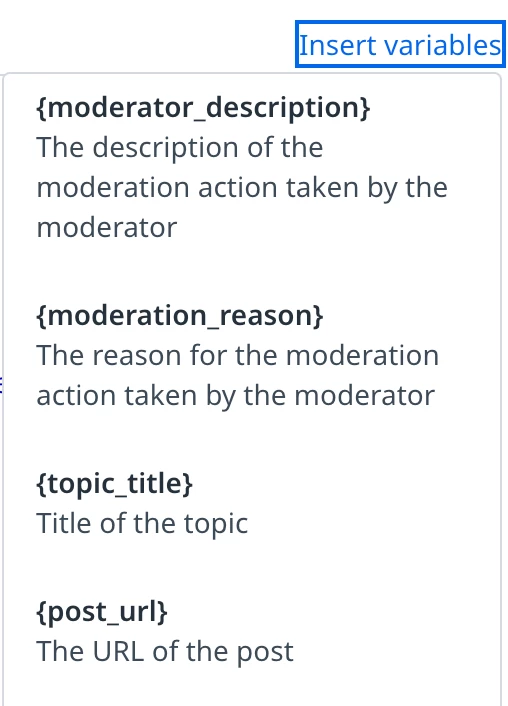Hi everybody,
I’m referring to this topic, as I can’t comment there:
First of all: Thanks for implementing this tool, Gainsight!
I have a few questions about it.
- Will every author receive the DSA Moderation mail, no matter their personal notification preferences?
- Will a user be able to opt-out of receiving DSA Moderations mails? Or is this considered a “mandatory” mail that you cannot opt-out of?
- Gainsight provided the {topic_title} token. Is there also a token to directly link to the post? → Background: When a comment is being edited (instead of the topic post), I want to be able to link to the comment that has been edited.
Thanks!

